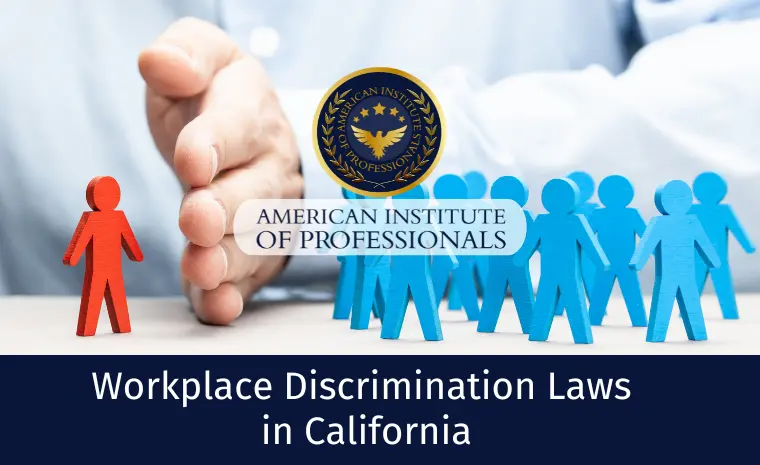In the dynamic landscape of California’s labor market, workplace discrimination remains a significant concern for both employees and employers. Discrimination in any form not only violates fundamental principles of fairness and equality but also undermines the productivity and morale of the workforce. California, renowned for its progressive stance on employment laws, has established robust legal frameworks aimed at preventing and remedying discrimination in the workplace.
Employers operating in California are subject to a comprehensive set of state and federal laws designed to protect employees from discrimination based on various factors. Understanding these laws is imperative for employers to ensure compliance and for employees to safeguard their rights in the workplace. This article provides an overview of the key California laws against discrimination, shedding light on their scope, provisions, and enforcement mechanisms.
Overview of California’s Anti-Discrimination Laws
California law against discrimination forms a robust framework aimed at fostering inclusive workplaces and combating all forms of discrimination based on various protected categories. Key points to consider regarding these laws include:
- California Fair Employment and Housing Act (FEHA): Enacted in 1959, FEHA serves as the cornerstone of California’s anti-discrimination efforts. It prohibits discrimination in employment opportunities, housing, public accommodations, and more, based on factors such as race, skin color, gender, age, disability, medical conditions, sexual orientation, gender identity, religion, national origin, and marital status.
- Alignment with Federal Laws: While California’s anti-discrimination laws often mirror federal laws such as Title VII of the Civil Rights Act, they frequently provide broader protections and remedies for employees. Employers in California must adhere to both state and federal anti-discrimination regulations, ensuring compliance with the highest standards of fairness and equality.
- Enforcement Mechanisms: The California Department of Fair Employment and Housing (DFEH) is tasked with enforcing FEHA and investigating claims of discrimination. Individuals who believe they have been subjected to unlawful discrimination can file complaints with the DFEH, which may result in administrative remedies or civil litigation.
- Exemptions and Exceptions: While California’s anti-discrimination laws provide broad protections, certain exemptions and exceptions exist for specific industries or contexts. Employers should consult an employment lawyer to ensure compliance with laws and regulations.
Need Legal Assistance?

Employer Obligations and Responsibilities
Employers in California have a legal duty to uphold anti-discrimination laws and foster inclusive workplaces free from discrimination. Key obligations and responsibilities include:
Anti-Discrimination Training
Employers must provide regular training to employees and supervisors on anti-discrimination laws, policies, and procedures. Training should cover topics such as recognizing and preventing discrimination, handling complaints effectively, and promoting diversity and inclusion in the workplace.
Effective Complaint Procedures
Employers must establish clear and accessible procedures for employees to report incidents of discrimination or harassment. These procedures should ensure confidentiality, prompt investigation, and appropriate resolution of complaints. Employers should also refrain from retaliating against employees who raise concerns or file complaints.
Compliance with Record-Keeping Requirements
Employers are required to maintain accurate records related to hiring, promotion, discipline, and other employment actions. This includes documenting complaints of discrimination or harassment, as well as any actions taken in response. Adequate record-keeping demonstrates a commitment to accountability and facilitates compliance with legal obligations.
Providing Reasonable Accommodations
Employers must provide reasonable accommodations to employees with disabilities or religious beliefs unless doing so would pose an undue hardship on the business. Accommodations may include modifications to work schedules, job duties, or physical workspaces to enable employees to perform their essential job functions.
Preventing Retaliation
Employers are prohibited from retaliating against employees who exercise their rights under anti-discrimination laws, such as filing complaints or participating in investigations. Retaliation can take many forms, including termination, demotion, or adverse treatment, and can result in legal liability for the employer.
Workplace Discrimination: What To Do?
In cases of discrimination or harassment, seeking legal counsel from a labor law attorney can be the most effective course of action for employees. Labor law attorneys specialize in employment-related matters and possess the expertise to navigate the complex legal landscape surrounding discrimination claims.
Labor law attorneys play a crucial role in representing employees throughout the legal process, from filing complaints to advocating for their rights in negotiations, mediation, or litigation. They can assess the strength of the case, gather evidence, and develop legal arguments to support the employee’s claims. Additionally, labor law attorneys can provide guidance on potential outcomes and help employees understand their rights and options under the law.
Conclusion
In navigating the complexities of workplace discrimination laws in California, both employers and employees play crucial roles in upholding principles of fairness, equality, and respect. Employers must proactively create inclusive environments, provide anti-discrimination training, establish effective complaint procedures, and maintain compliance with legal requirements.
However, in the face of discrimination, the support of an experienced labor law attorney is often critical. Labor law attorneys possess the expertise and resources to navigate the legal process, advocate for employee rights, and pursue remedies against workplace abuse and discrimination. Fight for your rights!





